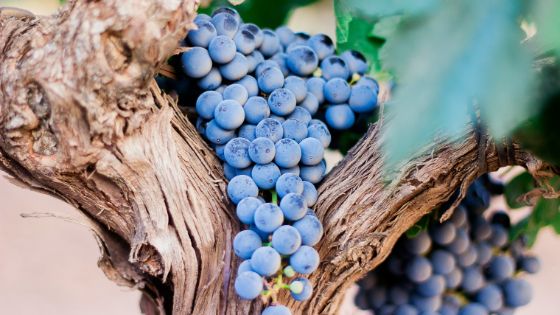Applied oenology
When mankind invented writing, fine fermented juice had already been flowing out of clay jugs in streams of red, light yellow and salmon colors and pleasing the palate for thousands of years.

Mesopotamia, about 6,000 years ago …
Juicy grapes plopped into the amphorae, exuding a sweet fragrance while the whole family helped with the harvest. When the sun finally set, the full clay vessels were carried home to the cool storage room. The next day, the grapes were spread out for the fall sun to dry and preserve them. But one of the amphorae had been forgotten in the storage room. However, a rotting smell did not catch the farming family’s attention, because the amphora was sealed airtight – not quite as reliably as today’s pots and bowls from "Kuhn Rikon", but enough that the grapes did not rot, but fermented instead. "The grapes!" someone suddenly shouted, bringing the supposed disaster to light. That, or something along those lines, is how mankind made wine for the first time.
Ubi veritas est?
"In vino", there is supposed to be truth, according to the well-known proverb. With this saying, the ancient Romans expressed that wine loosens the tongue and lowers inhibitions – so you give your opinion more honestly and openly. Wine was drunk throughout the Mediterranean in ancient times. The motto was "Panem et circenses": bread and games. Or in fact wine and games – which we watch today on TV instead of in the Coliseum. However, in ancient Rome, wine was not used primarily as an indulgent drink: If you mixed some wine into drinking water, the alcohol destroyed any germs and bacteria. This was an important method in regions where clean water was scarce. So the principle of "A glass of wine a day is healthy" is not unfounded – but, like wine, it is to be enjoyed with caution. The WHO recommends indulging in wine in moderation. Certainly better advice than you would get from Bacchus or Dionysus. Both the Greek and Roman gods of wine like seducing mortals with delicious grape juice.
Wine creates knowledge
If Bacchus and Dionysus were to walk on Earth in our time, they would probably behave differently. Even cheap wines are judged to be of far better quality today than the wines from antiquity and the Middle Ages. The divine duo would undoubtedly be delighted with the wine tastings at "Villa Orselina" or the delicious complimentary bottle of wine with a booking at the "Deltapark Vitalresort". Instead of intoxicating feasts with excesses, they would both be better advised to study "Oenology", the technical term for the "study and science of wine". For example, a master’s degree can be obtained at Geisenheim University of Applied Sciences or at HAFL. For the practical preparation for the exam – or for those interested in learning in general – ordering "educational material" in the shape of bottles from "Vergani" or "Jucker Farm" at preferential terms and conditions is advisable.
From theory to practice
Anyone who has now definitely read enough – at least in theory – should get started with the practical aspect, namely the grape harvest. The grape harvest is all about looking carefully at the grapes and then sorting them for picking. For winemakers, the period from the beginning of August to the end of October is the highlight of the year, because at last the months of work involved in cultivating the vines are literally bearing fruit. Because the landscape of the Swiss vineyards is steep and narrow, the harvest is often carried out by hand instead of using machines, which is why voluntary harvest workers are in great demand. Handpicking is time consuming, but it is all the more worthwhile: Only the healthiest and most ripe berries are harvested – to the delight of all vinophile connoisseurs.
Holistic land of plenty
Of course, a good drop of wine is always only half the battle. The bouquet of flavors can only be fully appreciated if the wine is enriched by a cozy atmosphere and worthy menu. "Gasthaus zum Gupf" in Rehetobel boasts 17 GaultMillau points and a wine cellar that is impressive: You are guaranteed to find the perfect wine for every meal and every mood among the 30,000 bottles. For metropolitans, the "Carlton" in Zurich is ideal – it’s just a stone’s throw from Bahnhofstrasse and awarded with 15 GaultMillau points. With the courage to try new things and an appreciation for the classics, the kitchen team will conjure up an explosion of flavors for you to enjoy. In addition, Clément Luisier, winemaker prodigy and GaultMillau’s "Rookie of the Year" 2024, ensures a glass full of indulgence.
We hope you experience lots of pleasure and delicious discoveries on your personal journey through the world of wine.







